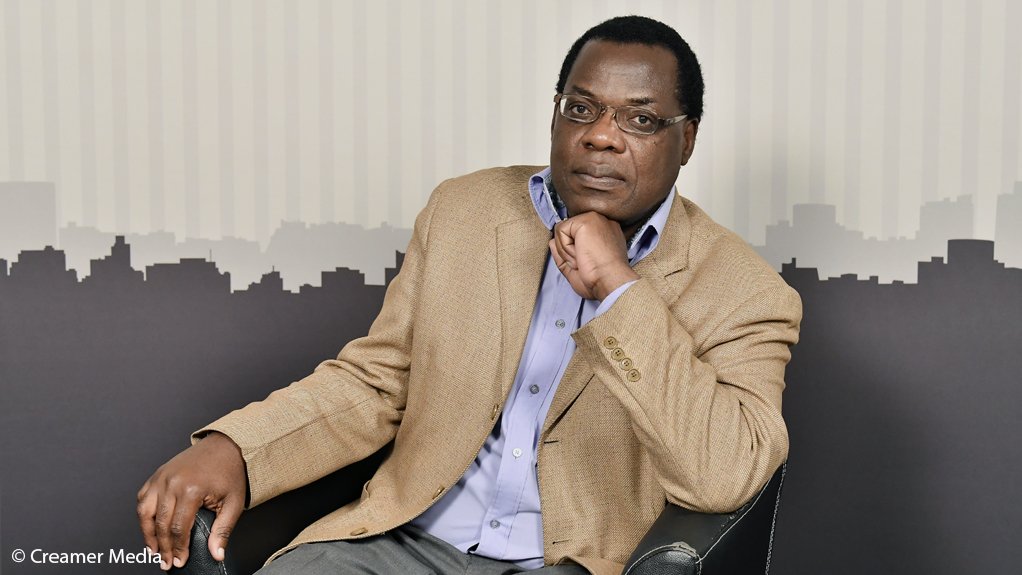In this opinion piece, Engineering News Senior Deputy Editor Martin Zhuwakinyu writes about the upcoming national elections in Botswana.
Botswana nationals go to the polls in less than a fortnight to elect local government representatives and Parliamentarians. Bar a near miss in 2014, the Botswana Democratic Party (BDP) has comfortably won each election since attaining independence from Britain in 1966. But, this time around, it’s not a given that BDP hegemony will be extended by another five years.
The main risk factor to the ruling party’s fortunes is Ian Khama, immediate past President and scion of the late founding President, Seretse Khama. Khama has fallen out with his anointed successor as State President and BDP leader, Mokgweetsi Masisi. He has since resigned from the BDP and founded his own party, the Botswana Patriotic Front (BPF), to contest the upcoming elections. As the chief of the majority ethnic group in Botswana’s central region, he seems to have calculated that his subjects will follow him out of the BDP and into the BPF.
Fitch Solutions has estimated the BDP’s prospects of winning the elections at 35% and those of an opposition coalition that excludes the BPF at 40%. Khama himself has predicted that his new party will take 14 seats. All this points to the likelihood of there emerging no outright winner, leading to a hung Parliament. To borrow TV show host JJ Tabane’s favourite phrase, coalition governments can be “a mess”. We in South Africa have seen loads of this in Port Elizabeth, Johannesburg and Tshwane, where multiple parties have been in charge of municipal affairs since the 2016 local government elections.
The Botswana debacle holds an important lesson for Africa’s Big Men, who seem to think they have a divine right to appoint their own successor. Khama probably thought Masisi would be a poodle, doing his bidding at every turn. But Masisi proved to be his own man, and this led to the fall-out that is playing out, which threatens to plunge Botswana into a mess. It would be a sad day if this were to happen – the country has hitherto been a paragon of clean governance and should remain so.
Khama was not the first African Big Man whose handpicking of a successor backfired spectacularly. We need not go beyond Southern Africa for examples. And there are several. The more recent ones are Eduardo dos Santos’ choice of Joao Lourenco as Angolan President and leader of the country’s ruling party, and Robert Mugabe’s little trick to have his wife succeed him at State House.
Dos Santos’ 38-year rule was synonymous with corruption and enrichment of family members. In a 2011 audit, the International Monetary Fund unearthed a $32-billion discrepancy linked largely to quasi-fiscal operation by oil parastatal Sonangol that did not appear in official accounts. When he was anointed as Angola’s new leader in 2017, Lourenco chose not to protect the interests of his benefactor. Instead, he set about dismantling his legacy of corruption, waging a war against this scourge that has ensnared some of the former President’s children.
In Zimbabwe, military commanders were so outraged by Mugabe’s apparent plan to have his much-hated wife become President after him that they staged a coup in November 2017, ending his 37-year rule. As they say, a coup is wont to beget a coup, and one can safely say Zimbabweans now live in perpetual fear that there could be another unconstitutional change of government – all because someone wanted to continue to determine the country’s course after leaving office.
Before the Dos Santos and Mugabe machinations, we witnessed Frederick Chiluba engage in a manoeuvre at the end of his second five-year term that resulted in Levi Mwanawasa becoming Zambia’s President. But Chiluba retained the leadership of the then ruling Movement for Multiparty Democracy, which had ended the rule of founding President Kenneth Kaunda in 1991. His attempt to be the real power behind the State Presidency came unstuck when Mwanawasa had him prosecuted for corruption. He was, however, found not guilty on all charges in 2009, a year before his death from a heart ailment.
The Chiluba drama mirrored what had transpired in Malawi, where, on being parachuted into the ruling party, subsequently becoming President, Bingu wa Mutharika almost immediately ordered that his benefactor and predecessor stand trial for graft.
EMAIL THIS ARTICLE SAVE THIS ARTICLE ARTICLE ENQUIRY
To subscribe email subscriptions@creamermedia.co.za or click here
To advertise email advertising@creamermedia.co.za or click here











